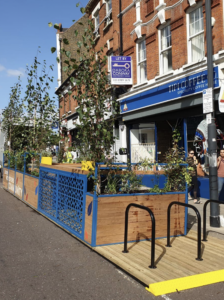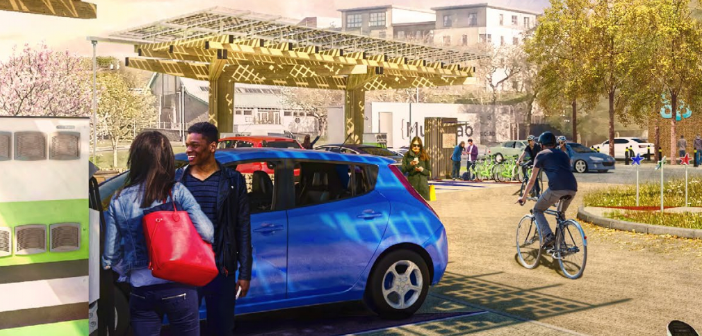Shared transport charity Collaborative Mobility UK (CoMoUK) has launched an online toolkit for transport professionals and communities interested in setting up mobility hubs in Scotland.
CoMoUK has created the free guide with the aim of driving the creation of more sustainable transport options. Such hubs have been identified as a priority by the Scottish government.
CoMoUK operates the national accreditation scheme for mobility hubs, working with both operators and councils. Its ‘mobility hubs toolkit’ publication is specifically aimed at Scotland, and contains information about setting up hubs with guidance on viability, design and promotion.
The publication highlights the Musselburgh journey hub which has been developed and is intended to be the first of many hubs around East Lothian for multi-modal shared transport.

It is accompanied by an additional document with new research on mobility hub delivery models, which has been launched across the UK. This includes guidance on management, accreditation and highlights a free forum for authorities to attend.
It also sets out examples of successful projects across the UK, including in South Woodford in London and Norfolk.
CoMoUK said communities across the UK would benefit from mobility hubs, which have been shown to boost local economies, reduce carbon emissions and assist in public health targets.
The new resources also aim to help transport professionals identify which type of mobility hub would be best suited for cities, towns and villages in their area. Hubs can include rail and bus connections, bike share schemes and EV charging points.
CoMoUK’s senior development officer in Scotland, Mark Dowey, said: “Mobility hubs meet several policy goals, including helping to decarbonise the transport sector, tackling air quality issues, and using land more efficiently and allowing for greater housing densities.
“They can also reduce congestion, allow for the revitalisation of cities by reclaiming space from the private car, and help tackle transport poverty by giving users viable, cheap, and easily accessible alternatives to the private car.
“Understanding the different typologies and components available for a mobility hub are crucial to their success.”





